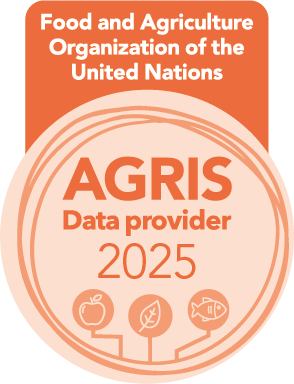The Rising Trend of Energy Drink Consumption among University Students: A Hidden Health Risk
Rising Trend Energy Drink Consumption among University Students
DOI:
https://doi.org/10.54393/df.v6i3.181Keywords:
Energy Drinks, University Students, Caffeine, Sleep Disturbance, Academic Stress, Adolescent HealthAbstract
Energy drinks, highly caffeinated beverages marketed to combat fatigue, are a global public health concern due to their association with adverse effects like insomnia and cardiovascular symptoms, particularly among young adults. Objective: To determine the prevalence, predictors, and self-reported health effects of energy drink consumption among university students in Pakistan. Methods: A cross-sectional online survey was conducted among 460 students at the University of the Punjab, Lahore. Data on consumption patterns, knowledge, and health effects were collected. First, bivariate analyses were performed to identify factors associated with frequent energy drink use. Subsequently, multivariable logistic regression was used to identify predictors of frequent energy drink use (≥3 times/week). The AOR from this test quantifies the strength of association between a predictor and the outcome, after controlling for the influence of other variables in the model. Results: The prevalence of current energy drink use was 175 (38.0%), with 22.9% of users classified as frequent consumers. Common consumption triggers were exam preparation (65.1%) and late-night studying (52.0%). Notably, 44.6% of users reported adverse effects, primarily insomnia (29.7%) and anxiety/jitters (18.2%). Knowledge about safe caffeine limits was low (28.5%). Significant predictors of frequent use included male gender (AOR=1.9; 95% CI: 1.1–3.3), residing in a university hostel (AOR=2.4; 95% CI: 1.4–4.2), and part-time employment (AOR=1.7; 95% CI: 1.0–2.9). Conclusions: The findings highlight an urgent need for targeted university-level health promotion interventions to educate students, particularly those in high-risk groups, about the potential dangers of energy drinks and to promote healthier alternatives for managing academic stress.
References
1. Kaur S, Christian H, Cooper MN, Francis J, Allen K, Trapp G. Consumption of Energy Drinks Is Associated with Depression, Anxiety, and Stress in Young Adult Males: Evidence from A Longitudinal Cohort Study. Depression and Anxiety. 2020 Nov; 37(11): 1089-98. doi: 10.1002/da.23090.
2. Puupponen M, Tynjälä J, Välimaa R, Paakkari L. Associations Between Adolescents’ Energy Drink Consumption Frequency and Several Negative Health Indicators. BioMed Central Public Health. 2023 Feb; 23(1): 258. doi: 10.1186/s12889-023-15055-6.
3. Silva-Maldonado P, Arias-Rico J, Romero-Palencia A, Román-Gutiérrez AD, Ojeda-Ramírez D, Ramírez-Moreno E. Consumption Patterns of Energy Drinks in Adolescents and Their Effects on Behavior and Mental Health: A Systematic Review. Journal of Psychosocial Nursing and Mental Health Services. 2022 Feb; 60(2): 41-7. doi: 10.3928/02793695-20210818-04.
4. Elslami AA, Bastami F, Ardalan A, Almasian M, Alibakhshi M. Energy Drink Consumption and Increased Risk of Smoking and Alcohol and Sweetened Beverages Use among University Students. Health Behavior and Policy Review. 2022 May; 9(3): 894-902. doi: 10.14485/HBPR.9.3.6.
5. World Health Organization. WHO Clinical Consortium on Healthy Ageing 2023: Meeting Report, Geneva, Switzerland, 5-7 December 2023. World Health Organization. 2024 Sep.
6. Kaldenbach S, Hysing M, Strand TA, Sivertsen B. Energy Drink Consumption and Sleep Parameters in College and University Students: A National Cross-Sectional Study. BioMed Journal Open. 2024 Feb; 14(2): e072951. doi: 10.1136/bmjopen-2023-072951.
7. Qasem NW, Al-Omoush OM, Al Ammouri ZM, Alnobani NM, Abdallah MM, Khateeb AN et al. Energy Drink Consumption among Medical Students in Jordan–Prevalence, Attitudes, and Associated Factors: A Cross-Sectional Study. Annals of Medicine and Surgery. 2024 Apr; 86(4): 1906-14. doi: 10.1097/MS9.0000000000001791.
8. Aljaadi AM, Turki A, Gazzaz AZ, Al-Qahtani FS, Althumiri NA, BinDhim NF. Soft and Energy Drinks Consumption and Associated Factors in Saudi Adults: A National Cross-Sectional Study. Frontiers in Nutrition. 2023 Dec; 10: 1286633. doi: 10.3389/fnut.2023.1286633.
9. Zucconi S, Volpato C, Adinolfi F, Gandini E, Gentile E, Loi A, Fioriti L. Gathering Consumption Data on Specific Consumer Groups of Energy Drinks. EFSA Supporting Publications. 2013 Mar; 10(3): 394E. doi: 10.2903/sp.efsa.2013.EN-394.
10. Ajibo C, Van Griethuysen A, Visram S, Lake AA. Consumption of Energy Drinks by Children and Young People: A Systematic Review Examining Evidence of Physical Effects and Consumer Attitudes. Public Health. 2024 Feb; 227: 274-81. doi: 10.1016/j.puhe.2023.08.024.
11. Grasser EK, Dulloo AG, Montani JP. Cardiovascular and Cerebrovascular Effects in Response to Red Bull Consumption Combined with Mental Stress. The American Journal of Cardiology. 2015 Jan; 115(2): 183-9. doi: 10.1016/j.amjcard.2014.10.017.
12. Costa R, Rocha C, Santos H. Cardiovascular and Cerebrovascular Response to Redbull® Energy Drink Intake in Young Adults. Anatolian Journal of Cardiology. 2023 Jan; 27(1): 19. doi: 10.14744/AnatolJCardiol.2022.2315.
13. Pušica I, Đorđević D, Bradić J, Jeremić J, Srejović I, Živković V et al. The Effects of Acute and Chronic Red Bull® Consumption on Cardiodynamics and Oxidative Stress in Coronary Effluent of Trained Rats. Vojnosanitetski Pregled. 2021; 78(1): 47-55. doi: 10.2298/VSP190119040P.
14. Jean SW and Jalil AM. Caffeine Consumption, Sleep Quality and Mental Health Outcomes among Malaysian University Students. National Journal of Community Medicine. 2024 May; 15(5): 370-378. doi: 10.55489/njcm.150520243858.
15. Alshumrani R, Shalabi B, Sultan A, Wazira L, Almutiri S, Sharkar A. Consumption of Energy Drinks and Their Effects on Sleep Quality among Medical Students. Journal of Family Medicine and Primary Care. 2023 Aug; 12(8): 1609-14. doi: 10.4103/jfmpc.jfmpc_1_23.
16. Dağtekin G, Soysal A, Aydoğan S, Çarman KB, Dinleyici M, Ünsal A et al. Energy Drink Consumption, Perceived Stress and Sleep Quality Among Health Science Students. Osmangazi Tıp Dergisi. 2020; 42(5): 568-76.
17. Attila S and Çakir B. Energy-Drink Consumption in College Students and Associated Factors. Nutrition. 2011 Mar; 27(3): 316-22. doi: 10.1016/j.nut.2010.02.008.
18. Pengpid S, Peltzer K, Nguyen-Thi TT, Jayasvasti I. Meal Skipping among Adolescents in the Philippines: Prevalence, Associated Factors, and Associations with Dietary, Mental Health, and Health Risk Behavioural Outcomes. Nutrition Journal. 2025 Apr; 24(1): 58. doi: 10.1186/s12937-025-01118-4.
19. Pomeranz JL, Munsell CR, Harris JL. Energy Drinks: An Emerging Public Health Hazard for Youth. Journal of Public Health Policy. 2013 May; 34(2): 254-71. doi: 10.1057/jphp.2013.6.
20. Alsunni AA. Energy Drink Consumption: Beneficial and Adverse Health Effects. International Journal of Health Sciences. 2015 Oct; 9(4): 468. doi: 10.12816/0031237.
Downloads
Published
Issue
Section
License
Copyright (c) 2025 DIET FACTOR (Journal of Nutritional and Food Sciences)

This work is licensed under a Creative Commons Attribution 4.0 International License.
This is an open-access journal and all the published articles / items are distributed under the terms of the Creative Commons Attribution License, which permits unrestricted use, distribution, and reproduction in any medium, provided the original author and source are credited. For comments









